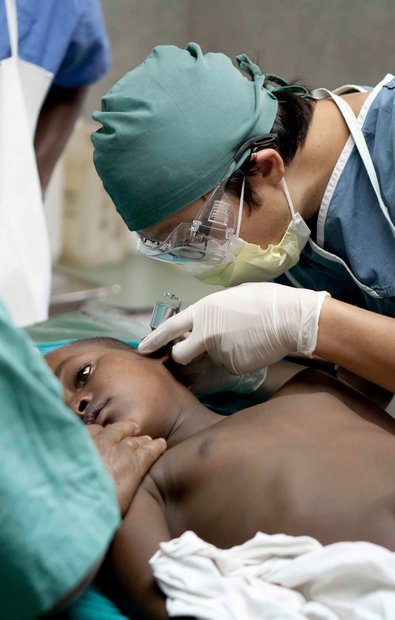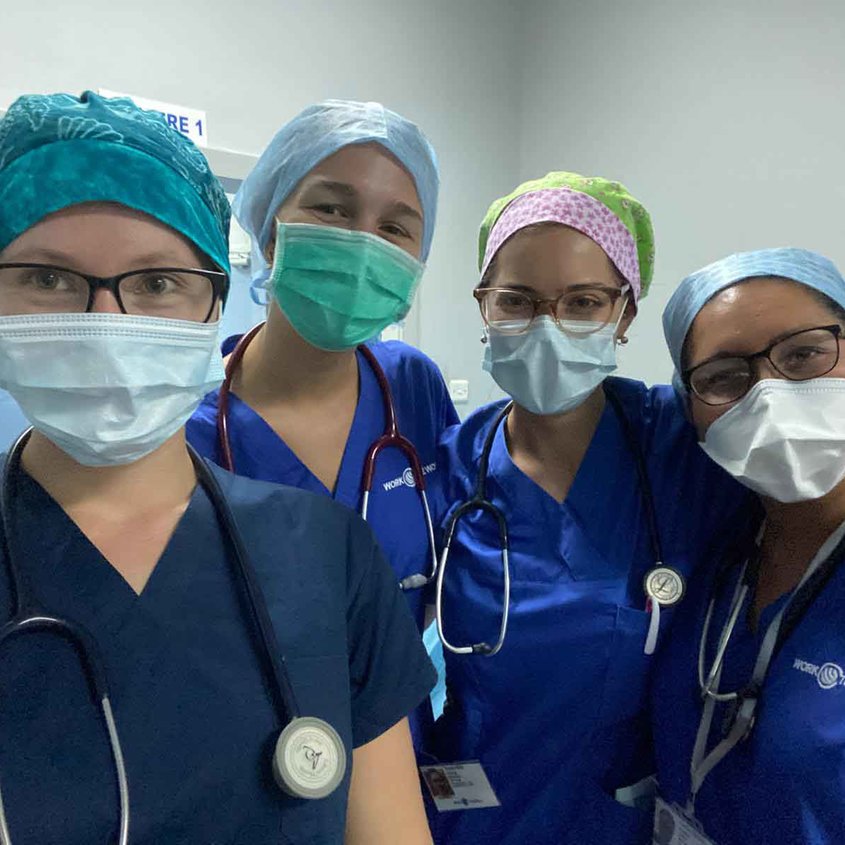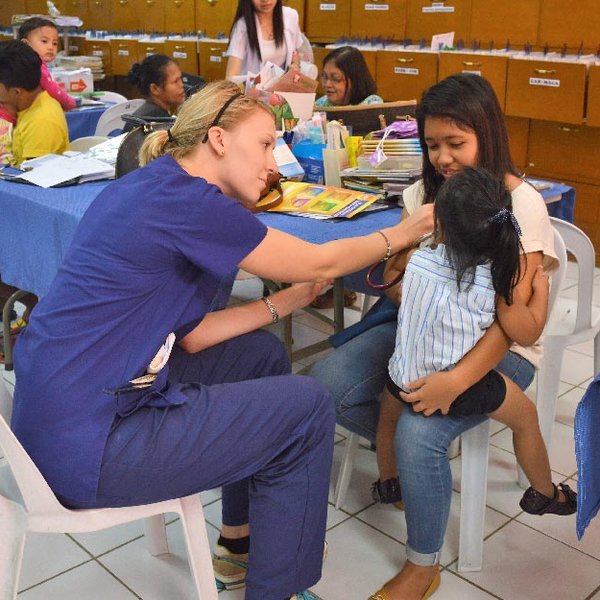WHY UNDERTAKE YOUR MEDICAL ELECTIVE OVERSEAS?
An overseas medical elective is an opportunity to sharpen your clinical skills in a low-resource hospital setting in Africa or Asia.
As a medical student, electives offer you the chance to see a breadth of both advanced and unfamiliar conditions, witness practices that challenge what you’ve learned, and learn how social and cultural issues impact the provision of care.
You have total control over the experience. Choose the destination to which you want to travel and the departments in which you want to gain experience. Note that we guarantee your department choices well before your trip.
We also provide you with detailed information such that you can plan your medical placement overseas down to the finest detail. An overseas elective for medical students is truly a once-in-a-lifetime opportunity.
FLEXIBILITY AND CHOICE
When it comes to choosing hospitals and departments, you have an unparalleled range of options.
We have partnerships with teaching hospitals, regional hospitals, large government hospitals, tertiary referral centres, specialist hospitals, and even small rural health outposts.
You can rotate through departments including general medicine, A&E, anaesthesiology, ICUs, OBG, surgery, and paediatrics. You can also get experience in more specialised areas like neurology, cardiology, and oncology.
For additional information about the broad range of specialist areas you can experience, please use the short enquiry form.
Whether you'd prefer day shifts, night shifts, or a combination of both, you have complete flexibility — the majority of our partner hospitals operate around the clock.
Elective placements for medical students and graduates last between 4 and 8 weeks, but we do offer a minimum of one week if you’re short on time. Arrivals are every Sunday, allowing you to travel at a time that suits you.
OUR SERVICE
The framework of our service is based on certainty and stability. Plan your overseas medical elective through us, and we will ensure your experience on the ground matches your expectations.
Take advantage of our well-established infrastructure, including the in-person relationships we have with our global hospital partners. These partnerships allow us to guarantee your hospital placement, your supervision, and your choice of departments. Of course, we provide detailed information about all of the above.
Even if you want to amend your choices once you’ve made them, we still offer an exceptional level of flexibility.
Basic inclusions that are part of all medical electives overseas:
- A dedicated placement coordinator
- English-speaking in-hospital supervision
- A 24/7 in-country support team
- Private, catered accommodation
For more details about particular aspects of our service, you can contact us using the short form and click the green Enquire Now button.
BEYOND YOUR PLACEMENT Abroad
Your clinical elective typically runs from Monday to Friday (unless you choose to spend additional time in the hospital). That means your evenings and weekends are free to explore whichever destination you choose to visit during your overseas medicine elective.
As a medical student, placements are primarily about the clinical experience. But our destinations offer an abundance of opportunities for adventure, too.
Some examples include hiking through the Himalayan Mountains, safaris on the Tanzanian plains, or simply relaxing on a paradise beach on the coast of Sri Lanka.
START HERE
Our team of expert electives is here to offer advice on all aspects of our service. They will answer your medical placement questions, helping you find a suitable combination of destinations and departments to plan the best medical elective abroad.
Contact us using the short enquiry form.
DESTINATIONS
Sri Lanka - Kandy

Find out more

On a medical elective in Sri Lanka (Kandy), you can undertake your placement in either a specialist paediatric institute, a government teaching hospital, or both. The teaching hospital is immense, and is home to eleven special units, seven ICUs and 23 theatres. This hospital serves a region with a population of around 2.5 million — you can expect busy wards throughout the institution. The paediatric hospital admits children from 0 to 16-years-old, and has an exceptional national reputation. You could see everything from premature babies to complex paediatric surgeries. Whichever you choose, experiences will be varied. Read stories from those who’ve already travelled with us to Kandy.

Ghana - Takoradi

Find out more

On a medical elective in Ghana, you have the opportunity to undertake your placement in a district hospital, a dedicated maternity clinic, or the best-equipped clinical institution in the city. Regarding the latter, it’s important to note that ‘best-equipped’ doesn’t always means ‘well-equipped’ — Your experience of medicine in Ghana will be entirely different to what you’re used to in Australia. You’ll immediately notice that resources are limited, and this makes a placement in Takoradi particularly eye-opening. But in spite of the challenges, you’ll see local staff work creatively to providing the best possible level of care for their patients. Read stories from those who've already travelled with us to Takoradi.

Vietnam - Hue

Find out more

On a medical elective in Vietnam, we’re partnered with a 600-bed university teaching hospital in which you can gain experience. Almost half of the hospital’s patients are from Vietnam’s most economically disadvantaged areas. Healthcare is actually free for many patients. However, heading to hospital often means a costly journey, sacrificing days of paid work in the process. Because of this, patients tend to delay seeking treatment. This often results in extremely late presentations of severely advanced conditions. Worsening matters, a lack of resources limits the care local specialists are able to provide. As far as medical placements overseas go, Hue is a fantastic option.

Tanzania - Dar es Salaam

Find out more

On a medical elective in Tanzania, you can choose to undertake elective in either a hospital well-known for maternity, an orthopaedics and traumatology institute, a well-reputed regional hospital, or the the country’s largest national referral hospital. Dar es Salaam is the largest city in the country. That means busy wards and patients with a breadth of unique health issues. One example is that economically disadvantaged areas are prone to communicable disease outbreaks — cholera, cerebral malaria, and tuberculosis to name but a few. When it comes to medical placements in Africa, Dar es Salaam is a serious contender. Read stories from those who’ve already travelled with us to Dar es Salaam.

Nepal - Kathmandu

Find out more

Our medical placements in Kathmandu allow you to choose between a major teaching hospital, a specialist maternity and women’s hospital, or a specialist children’s hospital. The teaching hospital has 22 departments, housing the greatest number of medicine specialties of any institution in the Nepal. 45% of the country’s population are under 15, so because the children’s hospital is the only one of its kind in Nepal you can expect a busy placement.Considering its cultural context, the women’s and maternity hospital is progressive — it offers family planning and reproductive services to all the city’s women. When it comes to medical electives overseas, Kathmandu is an excellent option. Read stories from those who’ve already travelled with us to Kathmandu.

Philippines - Iloilo
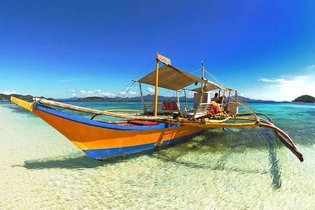
Find out more

On a medical elective in the Philippines, you can get experience in either Panay Island’s largest tertiary referral hospital, or a tertiary teaching hospital. National health insurance service does, to some degree, exist in the Philippines, but its coverage is limited. To give you some idea, local doctors often have to prescribe medicines based on patients’ ability to pay for it rather than what they need. This, combined with the fact that most patients are economically disadvantaged, has a detrimental effect on the care local professionals can provide. Read stories from those who’ve already travelled with us to Iloilo.

%2022.webp)
"I will never forget the Village Healthcare Week. It was very interesting to see the district hospitals, and a highlight was assisting in several surgeries".
Florijn Kielman, Universiteit Leiden 2025
Read more%2014.webp)
"I had the opportunity of suturing a patient’s scalp in ED with no local anaesthetic because they forgot to buy it from the pharmacy. The patient was a champ and didn’t move at all".
Max Powell, University of Tasmania 2025
Read more"I’d say that it is an incredible experience, and you won’t regret it."
Neve Sissons, University of Otago 2025
Read more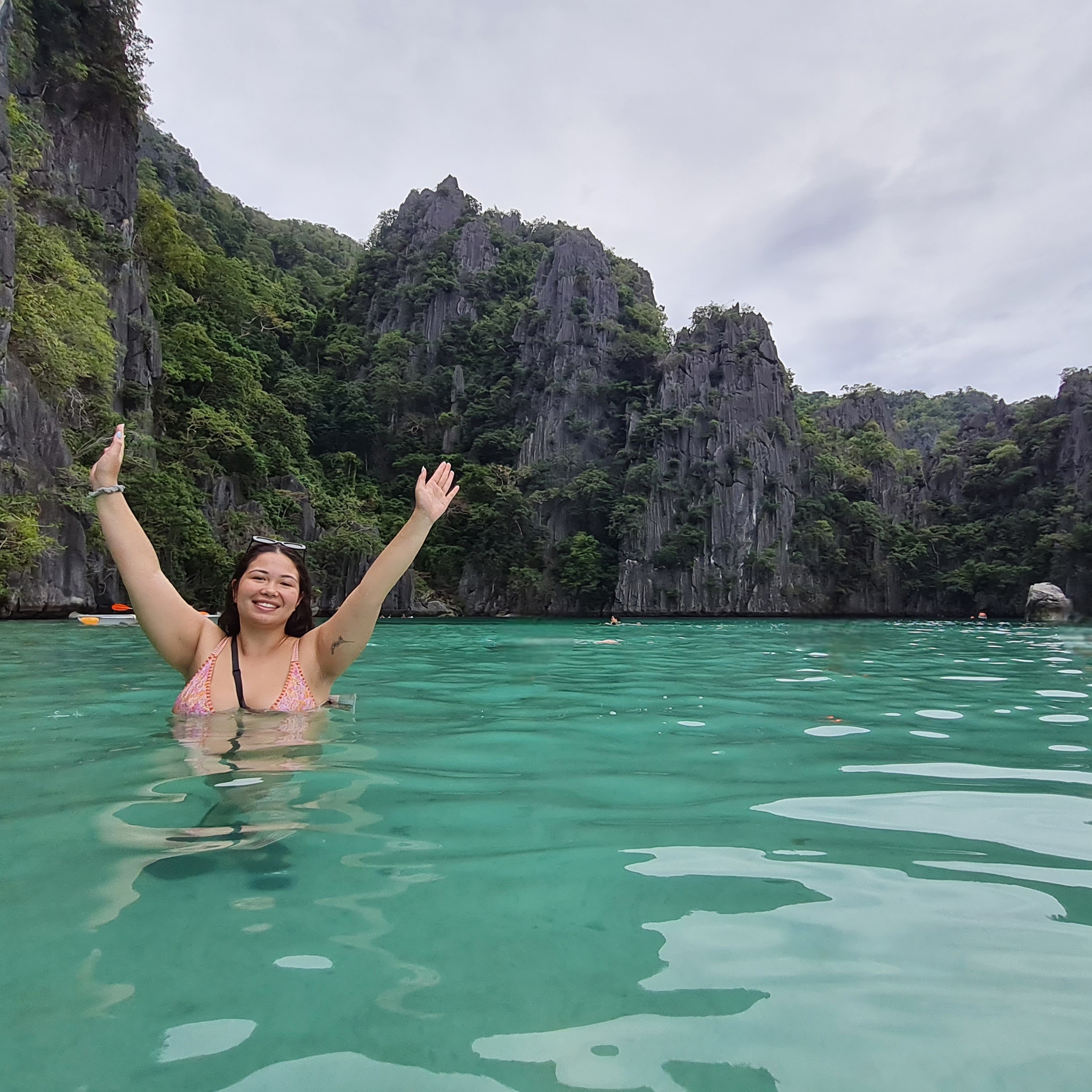
"I have grown a greater appreciation for the importance of clinical signs compared to reliance on investigations."
Alison Lirios, University of Queensland 2025
Read more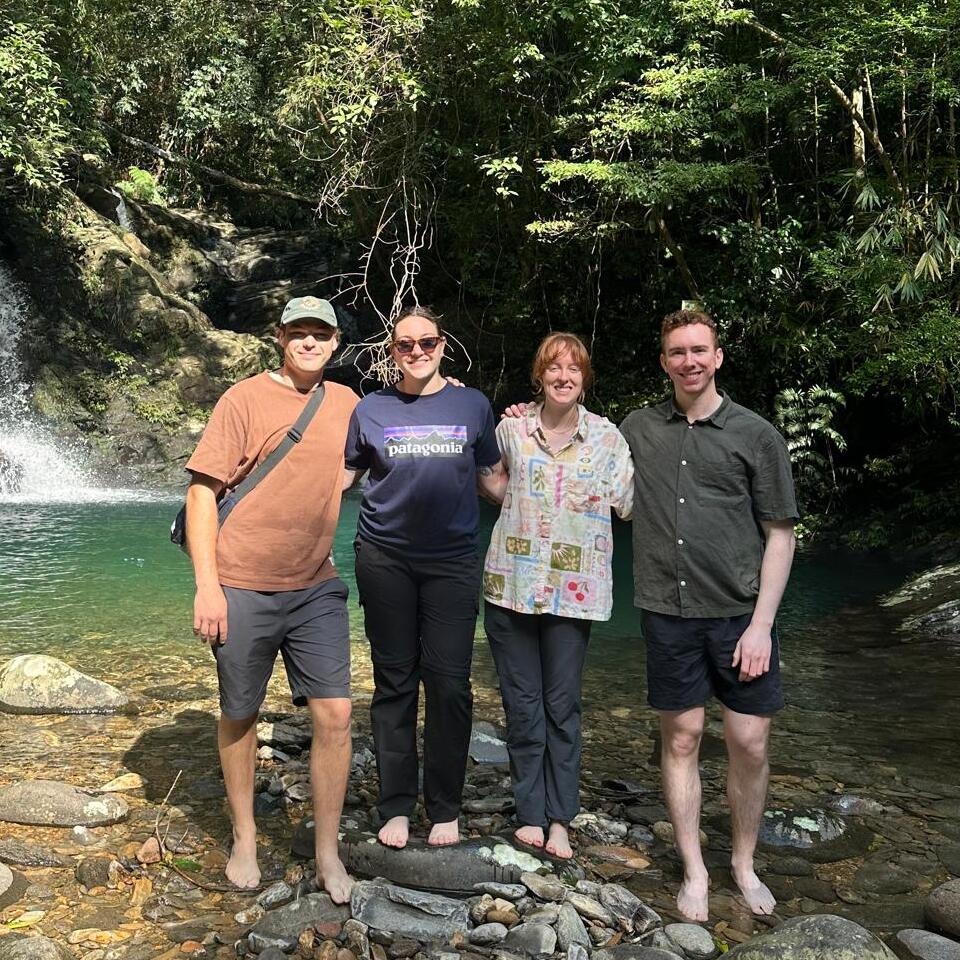
"It gave me the chance to meet many amazing people, travel, and experience new things."
Theodore Ives, University of Tasmania 2025
Read moreWhat do our medical electives offer?
A Work the World medical elective gives you the chance to undertake a clinical placement in the developing world. You will spend time in a low-resource hospital and see unfamiliar practices and advanced conditions. You can even choose the departments you want to rotate through. Learn more here.
What are the benefits of a Work the World medical elective?
A clinical placement aims to give medical students practical experience while broadening their perspective on the medical profession. The benefits of our medical electives abroad include:
- Expanding your clinical knowledge and skill set
- Becoming more confident, independent and resourceful
- Making yourself more attractive to employers
- Doing some proper travelling
- Building your personal and professional network
- Sharpening your language and communication skills
- Renewing your perspective on care back home
How can I raise funds for my medical elective?
It’s easier than ever to get the funds together for your overseas medical elective. You can take advantage of government programs like OS-HELP, you can take the initiative by starting your own online fundraising page, and you can apply for a huge number of grants and bursaries to help you along the way. Learn how easy it is to raise as much as you need.
What kind of cases will I see on a Work the World medical elective?
You will see cases like:
- Tropical infectious diseases like malaria, dengue fever, and chikungunya
- Advanced conditions that have been left untreated
- A high number of cases of HIV, sickle cell and other haematological diseases
- Much higher numbers of RTAs than you’re used to at home
- Conditions arising from socioeconomic issues, like pesticide-induced renal failure (at epidemic levels)
How long is a Work the World medical elective?
A medical elective is as long as you want it to be. Our minimum placement duration is one week, but medical students and graduates typically travel on their medical electives for 4 - 6 weeks. There is no upper limit to how long you can travel for.
What is a medical elective?
A medical elective is a clinical placement that medical students undertake as part of their MBBS degree. Medical electives give students the chance to gain practical experience in a relevant medical speciality. As many as half of medical students in Australia travel abroad for their elective placement. If you want to undertake your medical elective overseas, get in touch with us today.
